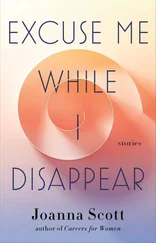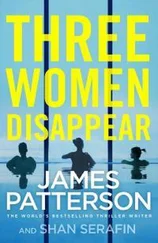But no one — not any of Frederik’s new friends, not Niklas, not Thorkild or Vibeke — is with him enough to know the truth. I’m the only one. And there’s no question that he still has problems taking initiative. Again and again, I have to remind him about things that need taking care of in the apartment when he’s there alone. And when they don’t get done, it’s not just because he lacks initiative; there’s also evidence of self-centeredness and deficient long-term planning, since he certainly can make the effort to go out with his new friends.
And then there’s his impaired inhibitory mechanism. If he’s used the last piece of toilet paper, either he forgets to replace the roll, or instead of just taking one roll down from the cabinet, he takes three and stacks two of them on the floor beside the toilet, even though I’ve told him I don’t like him doing that. When he opens a bag of muesli or something else in the kitchen, he makes the hole much too large, and when he’s supposed to buy groceries, using the list I write out for him in the morning, he buys too many packages or packages that are too large of whatever it is I’ve asked him to get, even when I explicitly write a reminder not to on the list.
At least Niklas has been brought up well enough that he comes into the kitchen without being asked, and carries his juice and cake back to the coffee table.
Last week I saw him sitting with some friends down on Williams Square. I was driving past, and Niklas had an arm around Emilie as if they’d just been kissing. Something in their body language told me that they were the alpha pair in the group. And why not? They’re both attractive, well dressed, intelligent, they’ve got everything. They must be the couple the other couples all want to be — sick father and all. So has Niklas shifted his whole life, his whole world over to his friends now? Is he actually happy now? If only I could discover a little bit more about how it’s going with Emilie; that must be what takes up the most space in his life these days.
Niklas says, “You also say we can tell Dad is sick because he’s over at the neighbors’ so much. But in the old days he was always working, right? He didn’t have any time to talk to the neighbors. Being at the neighbors’ now doesn’t necessarily have anything to do with him being sick. In fact I think it’s a good thing; there just wasn’t anybody who did that on Station Road. Now we’ve moved, and he’s adjusted to the fact that people live differently here, that they’re more involved with each other’s lives. You’re the one the neurologists would call rigid. And the same thing goes for the rabbit business.”
“Well, I guess I can see that,” I say, wishing that for just five minutes, Niklas could be on my side.
But he won’t let up. “If you gave Dad his car keys back and let him go online again, it’d also be a lot easier for him and Khayyat when they get old LPs and stuff from people’s homes and sell them down by The Square.”
“What are you talking about?”
“I really like Khayyat. He sets out the things he gets by the parking lot in back of the mall, and Dad helps him sell—”
“Your father is not going to sit in some parking lot and hawk junk! All our friends pass by there! He’s a headmaster! Not one of those people who—”
“He just wants to help. To earn some money.”
“But he earns squat! In any case I haven’t seen any money.”
“Right now there’s only enough for candy and cigarettes. But later—”
“He’s started smoking?”
“Not that I know of.” Niklas answers too quickly, clipping the words off.
“Have you started smoking too?”
“No.”
“But Dad has.”
“No, I definitely don’t think so. He just buys them for his friends.”
“Oh God damn it, Niklas! Why are we talking like this? Why can’t we just be honest with each other, you and me?”
“But I haven’t started smoking!”
“That’s not what I mean!”
What have I done that’s so terrible? Why are my husband and son both being taken from me like this? I feel awash in self-pity, and that makes me despise myself even more.
But I’m the adult here. Three deep breaths. No sniveling; I pull myself together.
“Niklas, I just want to tell you, I feel like you’ve done a remarkable job of dealing with your father’s illness.”
“Really?” Why does he already look so bored and dismissive?
“Yes, you have. But there’s no call for you to be brave all the time. It’s all right for you to have feelings too, just like—”
“Uh-huh.”
“I mean, you’re human too, and even though you probably have a great time with Emilie, I’m sure you also must be affected by …”
I hate myself as I speak, I sound like such a cliché. It feels as if it’s not just him, but also me who’s being crushed and suffocated by all this water. I can’t tell where Niklas is right now, but I’m deep inside his photographs, I’m sinking, gasping for air, drowning.
Storytelling’s Crutch Is Broken
Signe Riis Gormsen
Twentieth-century narratives have become inextricably intertwined with psychoanalysis in their use of structure, characterization, and symbol. Meanwhile, psychiatric research in recent years has exposed psychoanalysis as an unscientific superstition on a level with astrology and numerology.
If the art of narrative in literature, TV, and film does not develop the strength to stand on its own feet without leaning on psychoanalysis, storytelling will be doomed to play a role in our time like that of a dictatorship’s doddering old head of state: a decidedly antimodern force that must be circumvented or killed if any form of real cultural development is to take place.
One essential characteristic of the well-told tale is that elements introduced along the way in the story subsequently turn out to have been introduced with a purpose.
Every reader has an intuitive narratological feeling that she obtained from fairy tales, among other things, which enables even a child to distinguish a sequence of random events from a “telling.”
I’m reading “Silly Hans,” the fairy tale by Hans Christian Andersen, to my 7-year-old nephew, who has never heard the story before. I read about Silly Hans’s two brothers riding to the king’s castle on horseback to propose to the princess, while Silly Hans rides a goat. I ask my nephew if he thinks the story is over yet.
No .
I read to him how on the way to the castle, Silly Hans finds first a dead crow, then a wooden shoe, and at last some mud, all of which he takes with him. Is the story over yet?
No .
I read how the princess at the castle says that it is hot because the king is roasting chickens. “Then I should be able to roast this crow,” Silly Hans says and pulls out the crow. The princess tells him she has nothing to roast it in. “But I do,” says Silly Hans, pulling out the wooden shoe. The princess says that she doesn’t have any sauce. “I’ve got so much sauce that I can spill some of it,” says Silly Hans, and he pulls some mud up out of his pocket.
“I like that!” says the princess, and so they get married.
Is the story over now?
Yes. Now it’s over .
A series of random events doesn’t become a story until the events have been shaped into a meaningful pattern and the narrative’s various threads have finally been braided into a rope. This sense of elementary narrative structure resides so deep in us that even a 7-year-old can distinguish a story from a recitation of personal descriptions and actions.

Читать дальше
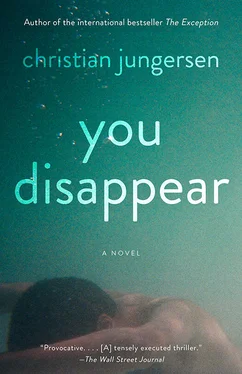

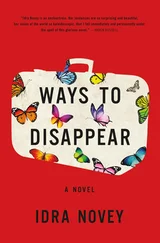
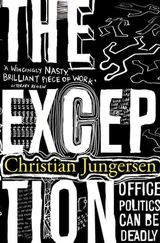
![Ally Carter - [Gallagher Girls 01] I'd Tell You I Love You But Then I'd Have to Kill You](/books/262179/ally-carter-gallagher-girls-01-i-d-tell-you-i-lo-thumb.webp)
